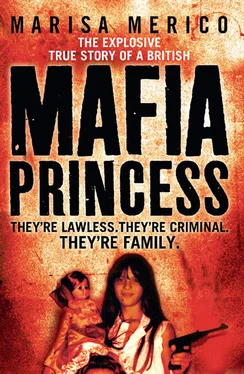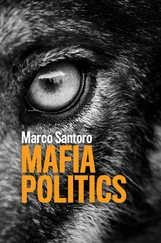They were on one of their regular Sunday afternoon trips out to the Lakes. Alessandro was quiet and thoughtful as he laid out their blankets. They’d been together for more than a year and Pat thought he might be going to propose to her.
Instead, she shivered in the sun as he said: ‘Patti, I love you, but I can’t ever marry you. My family have arranged for me to marry someone else. I have no choice, no choice at all.’
Pat couldn’t believe it. It was absurd. Alessandro was from southern Italy, where the culture could be as strict as Islam, but an arranged marriage? In April 1969? She couldn’t, couldn’t understand.
Alessandro tried to explain how serious it was. His parents had discovered he was seeing an English girl. His father was so indignant he took a knife to his son’s throat and hissed, ‘You stay with this English girl over my dead body.’
Alessandro said they had to end their affair then and there. It was over, for ever.
‘I’m so sorry, Patti, but there is no other way. I have no control over it. I have to do what my father is asking me.’
She begged him to change his mind. He could run back to England with her. They could hide in Italy. Go to France. America. It did no good. They were both crying as Alessandro drove them back to Milan. He gave her one final kiss when he dropped her off. It felt cold.
Pat sobbed and sobbed for weeks. She only slept when she was utterly worn out with exhaustion because her mind was spinning, asking questions around the clock. It was really just one question: why?
The only thing keeping her sane was the hope that it was all a mistake: Alessandro would come back to her, the arranged wedding would be abandoned and all would be well.
That was a fantasy; the reality meant more heartache. Friends told her Alessandro had met his future wife and the wedding date had been set. She snapped. The crying stopped. With no more tears left in her, she went to see Alessandro at his barber’s shop. Hysterical, she screamed for her lover to come out.
‘You’ll get me killed, Patti!’ Alessandro shouted back. ‘You’ll get me killed if you do this! Go away before someone sees us.’
He slammed the door in Pat’s face. With a loud crack he threw back the heavy bolt. It went into her heart.
She found the tears again. They flooded out as she limped off down the street. She was sobbing so much she could hardly see the two young guys asking if she was OK, if she wanted a lift home.
Love had turned into frustrated anger and Alessandro, the man she wanted so terribly, was the only one she could take it out on; cursing him, she was thinking in a mixture of English and Italian: ‘Right! I’ll show him what’s what. Vivi il presente .’
Without a thought about what she was doing, she got into the back of what she soon realised was a very smart car. It seemed brand new. She could smell the leather.
The driver, who introduced himself as Luca, said: ‘Momento!’ They had to wait for another friend, just a couple of minutes and they would be on their way. They would look after her, take her home. She mustn’t worry, must stop crying. The other guy, Franco, got in the back of the car with her.
Pat didn’t care as the moments ticked on. She sat silently all wrapped up in her aching upset. It was the end of her world, of her life. She was traumatised. She felt dead inside.
Suddenly, the driver was talking to someone. There was a clunk and a pull at the front passenger door. A short, wiry young man with a flowing flop of black hair climbed in beside the driver.
He twisted, whirled around, and stared at Pat with a naughty grin: ‘Ciao, bella! Ciao, tesora.’ [‘Hi, lovely! Hi, beautiful!]
His name was Emilio. Emilio Di Giovine.
‘To be honest, as this world goes, is to be one man picked out of ten thousand.’
WILLIAM SHAKESPEARE,
HAMLET
Luca, the driver, invited Pat to a nightclub and she agreed. She wanted to forget Alessandro. She put on a yellow dress to brighten her spirits and went out intending to have some harmless fun.
That evening Luca’s best pal Emilio Di Giovine once again magically materialised in his tight shirt and tighter pants. He arrived late at the noisy, smoke-filled nightclub, explaining that he’d crashed a borrowed car and the owner was not amused. Emilio was not bothered. As his friends jabbered questions about the accident, he shrugged: ‘It happens.’
His eyes were watching Pat dancing and he was soon making his way across the crowded dance floor to talk to her. It was as if Luca didn’t exist.
‘Do you want me to take you home? Why don’t you go out with me?’ He said he would take her out the following night.
‘You’d better not take me home,’ she said. ‘I came here with Luca.’
But Emilio came round the next night and the two of them went to a funfair. From then on, he kept coming to pick her up, each time driving a different car. They were all spanking new and when she queried this he told her: ‘My dad has a garage.’
After stealing a kiss on an early date he said, ‘Pat, you’re the kind of girl I want to marry.’
Mum was twenty-three years old and she’d heard plenty of chat-up lines so she laughingly brushed this off as nonsense. It was silly, Italian Romeo talk from a boy who was only nineteen years old. Her instinct was to tell him to hop it. Yet it was nice to hear the passionate patter after the heartbreak of Alessandro. It was good for her self-esteem to feel wanted.
And so was his lifestyle. She couldn’t get her head round the new cars: a Porsche on Tuesday, a Mercedes on Thursday and a nippy Alfa Romeo for Saturday and Sunday. There was always something new for the weekend.
‘Emilio, what do you do ?’
With a charismatic smile and not a hint of shame, he replied, ‘I race cars and work as a mechanic at my father’s garage.’
As far as Pat was concerned, he might have said he was going to the Moon along with Neil Armstrong and Buzz Aldrin who’d just become the first men to take a stroll up there. It didn’t make sense to her. It was curiouser and curiouser. Their trips around town only confused her more. The flash cars weren’t the attraction. He was like a magnet for people, who hurried over to talk to him as if they just wanted to be seen near him.
Everywhere he went his language was cash but in many bars and restaurants his money was foreign to them; the owners wouldn’t take it, saying their meals and drinks were on the house. He wore bespoke suits, his shirts and ties from the Via Montenapoleone designer shops, his shoes imported, English and cap-toed. He was groomed to perfection, having a wet shave and his moustache trimmed every day at the barber’s. There, his double espresso and his toasted cheese panini were always waiting as he took the central chair, like a celebrity. It was fascinating. She seemed to have stepped into some extraordinary wonderland.
And Emilio was a get-things-done kind of guy. Certainly, when Pat had problems with the family she was working for he was quick to sort things out.
One night after she put the kids to bed, the father tried to get it on with her. Pat realised he was horribly drunk and told him to get lost. She went off to bed in the room where she slept next to his daughter. She woke up with the guy trying to feel her up under the duvet and that was that. She ran out of the house and called Emilio.
‘Pack your stuff,’ he told her. ‘You’re not staying there. What’s he going to do next?’
She went back to get her things but the family wouldn’t open the door to her. When Emilio arrived Pat was a wreck, sobbing outside the apartment building. He took one look and told her to wait in his car. She tried to say he shouldn’t do anything but he took off in a rush of virility.
Читать дальше












